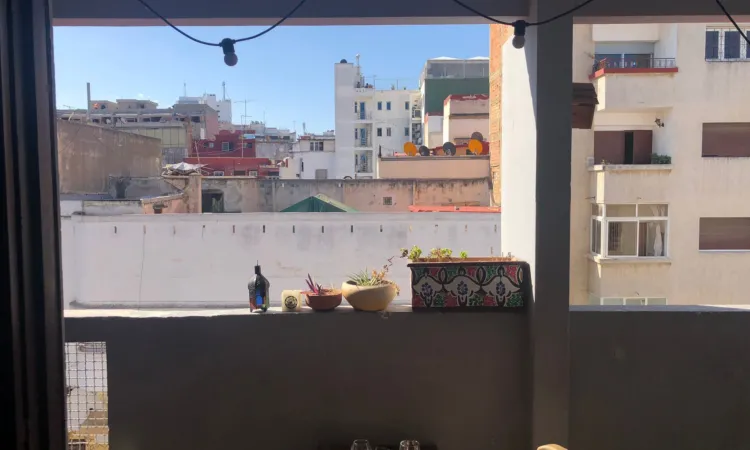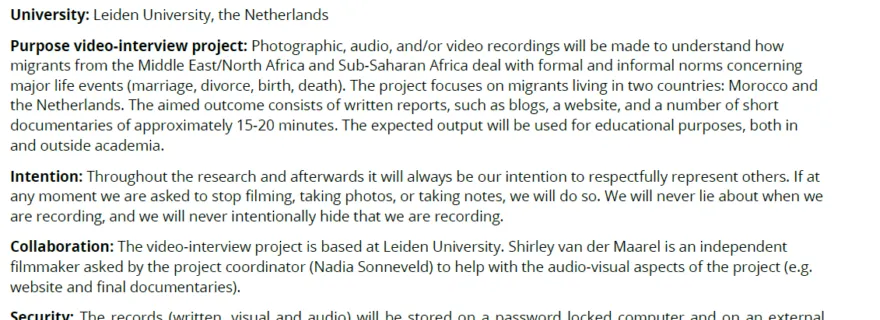"Please delete that video"
Informed consent is an ongoing process, not a one-time formality. Throughout my research, I repeatedly sought respondents’ consent to ensure they remained fully informed and felt comfortable.
Captured on video
When inviting respondents to be interviewed on camera, most declined, while a few agreed under specific conditions: their faces should remain unrecognizable, and their real names should be omitted.
One couple accepted the invitation. During the interview, the couple spoke openly about their community membership, and the filming proceeded without hesitation. However, after reviewing one of the videos, they became uncomfortable with publishing it online. Though the video contained no negative expressions, they feared that merely acknowledging their community on tape could have unintended consequences.

Photo taken by Judith van Uden.
Social repercussions
Their explanation highlighted the deep influence of their community, which extends beyond Morocco to members worldwide. Even if they move abroad, they will still encounter fellow members. Their community knows “everything about us”.
Beyond these concerns, they also feared being ridiculed. "People might laugh at our humble and unusual wedding," they admitted. "They don’t understand our situation and might speak with bad intentions. We don’t normally share this, but we trust you—you are our family."
At first, I felt frustrated after spending hours on video editing. But ultimately, this experience deepened my understanding of their social embeddedness. I hadn’t fully grasped the extent of their community’s influence until this conversation, realizing it functions almost like a "second state."


